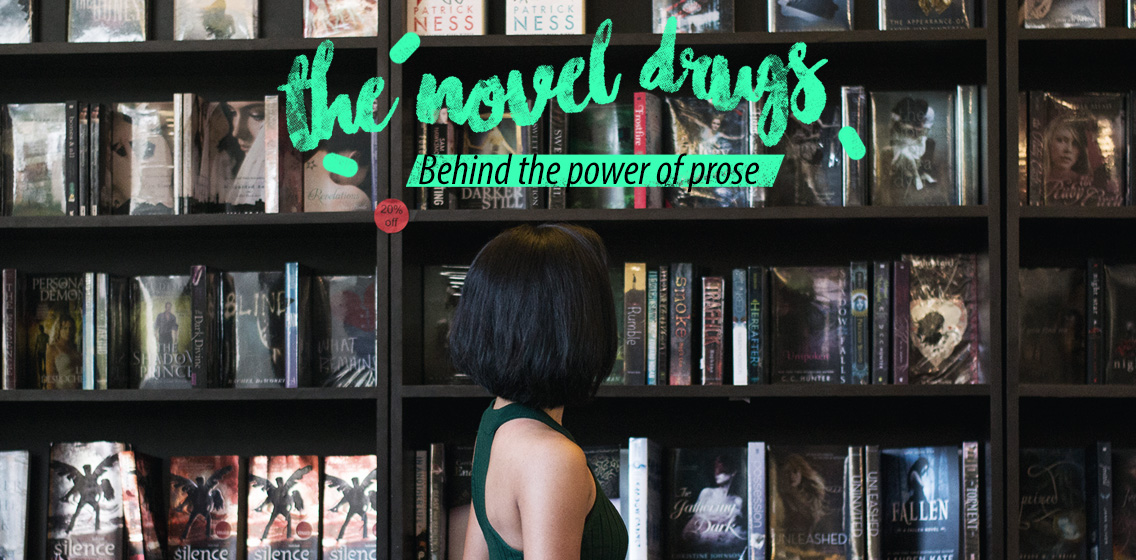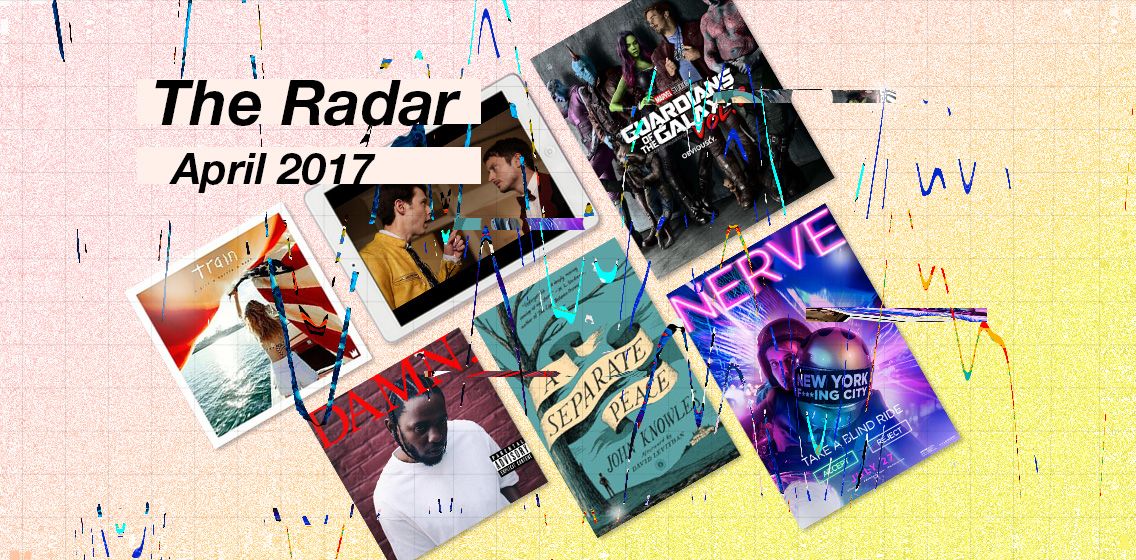The novel drugs
Getting lost in the world of literature and fiction is a voyage that anyone can divulge in at any given time. If words have the power to cast our spirits to the highest of mountains, it wouldn’t be so far-fetched to think they can also plunge our sadness into even murkier depths. See just how far reading can intoxicate the soul and plague the mind—for better or worse.
Hidden dangers: prologue
It’s no secret that reading is a solitary endeavor. Only in our most secluded places can books truly unfold their magic. We unknowingly tune out the drivel of the outside world and indulge into the characters’ experiences, becoming more aware of our own and of others’ lives. This kind of empathy, however, can have side effects.
Notably, the empathy we gain from reading books can consequentially come back to us as we dig deeper in our self-awareness and discover hidden problems that we haven’t even considered before, according to Gail Rebuck of the Sydney Morning Herald. Unrealistic expectations tend to gnaw at us when we are shown with what we’re missing, like when fictional characters tend to have better lives than us.
Additionally, staying cooped up and reading in bed all day may sound like a dream for some but excessive reading can also have its perils according to Susan Salter Reynolds of The Los Angeles Times as she states that over-reading can make one experience side effects such as disorientation, dissatisfaction, and even severe loneliness.
Disorientation stems from the readers failing to connect with the real world, as they are locked in a haze from over-reading. Dissatisfaction, on the other hand, is the reader’s inability to move on from the fictional world they have so often stayed in, thus making the real world seem less exciting, which could lead to choosing not participate in it. Though the term may sound harsh, severe loneliness stems from the reader becoming so engrossed and attached to the book that he feels alone without the comfort of a paperback.
One might think that those side effects of reading are a bit too extreme, but it should be remembered that as tempting as it is to simply ignore the outside world and stay in the land of fiction where everything goes according to plan and plot, there are times where we have to face reality and our real-life antagonists, and to live through plot twists.
Gloom: climax
When you find yourself overstaying in the fictional land, you start to become attached to the characters and to what they’re going through. We’ve all had that occasional cry over a sad, yet satisfying book; the moment when a particular line hits just the right spot is a bittersweet moment that no one can describe. But there are moments when people actually crave and embrace that sadness to a certain degree and take it to extreme lengths.
Some even put their lives on the line based on a thrill; a classic example being the loosely autobiographical novel titled The Sorrows of Young Werther. The novel was published in 1778 about the tragic life of man named Werther that eventually ended in his suicide. The book caused uproar in the youth of the 1700’s and led to the first known cases of copycat suicide—otherwise known as the Werther Effect—as unfortunate young souls would be found dead with the novel in their hands. Young men who also experienced rejection and heartbreak like Werther would shoot themselves in the head while wearing the exact same clothes the protagonist had worn as a sign of respect to the novel. The feelings of isolation and downright loneliness felt by the young generation of the time were only heightened by the book’s publication, as the youth back then didn’t have as many outlets of self-expression compared to today.
Modern pieces of literature have also sparked fire in the hearts of the youth such as The Virgin Suicides by Jeffrey Eugenides and Fight Club by Chuck Palahniuk. Surely, countless faithful readers of Japanese writer Haruku Murakami have even felt the resounding question of “what am I doing with my life?” when reading his works. Fortunately, copycat suicides have become rare in the past decade, as the youth now have access to better resources to hone their feelings of isolation, particularly support groups on the Internet and society’s wider awareness of the problems that young people face—an awareness that brings upon much-needed response for their once-overlooked issues.
In a different spectrum, the study Why do we read sad books? by Eva Maria Koopman of Ermasus University in Notterdam suggested that our meta-emotions are the reason behind why we choose to go through the pain of a sad book. Simply put, meta-emotions are the awareness we feel toward our own emotions. We like to feel in control of our sadness, therefore we choose to read sad books because we choose to feel prepared for our sorrow, rather than to be blindsided by it.
Though there are times when it’s just sinfully satisfying to dwell on the pain brought by a book, this masochistic desire that all humans seem to have should be kept in control, or else we’ll find ourselves mirroring the gloomy characters we read about.
A positive spin: epilogue
One shouldn’t assume that hurt and sorrow are the only things that reading can bring, as many wonders can actually happen when someone truly invests their whole hearts and minds when embarking on a literary adventure.
To support the positive effects of reading Annie Murphy Paul states in her Time article Reading Literature Makes Us Better and Nicer that deep reading or spiritual reading, is an endangered act that not everyone has the luxury to do. Slow and immerse reading enhances the reader’s mind and emotional capacity, making them understand real life struggles better than those who read pragmatically, or only to get certain information.
The process of intense reading has also been compared to being in a hypnotic trance, as said by psychologist Victor Nell. He states that those who enjoy the feel of reading actually go about it slowly, breaking the belief that bookworms read faster. The more fun you have reading, the slower your pace is as your brain takes time to formulate personal opinions, thoughts, and reflections from the text. Nell even goes as far as comparing it to “falling in love” with the author, as a kind of complex back-and-forth conversation happens between the reader and author.
In this world of fast-paced e-reading and 140-character limits, someone cozying up with a book is a rare sight to see. But for those who have the patience and privilege to read with their heart and soul have the great benefit of exploring not only the fictional world, but also the secret world they hold within.
***
Reading can take us to unknown faraway places, but more often than not, it can take us to the most mysterious place of all—our inner workings. Though not everyone wants their days with the company of books, the need to be understood is something we all crave for, and that urge can certainly be fulfilled with literature.
Photos by Roxanne Valerie Rasco








